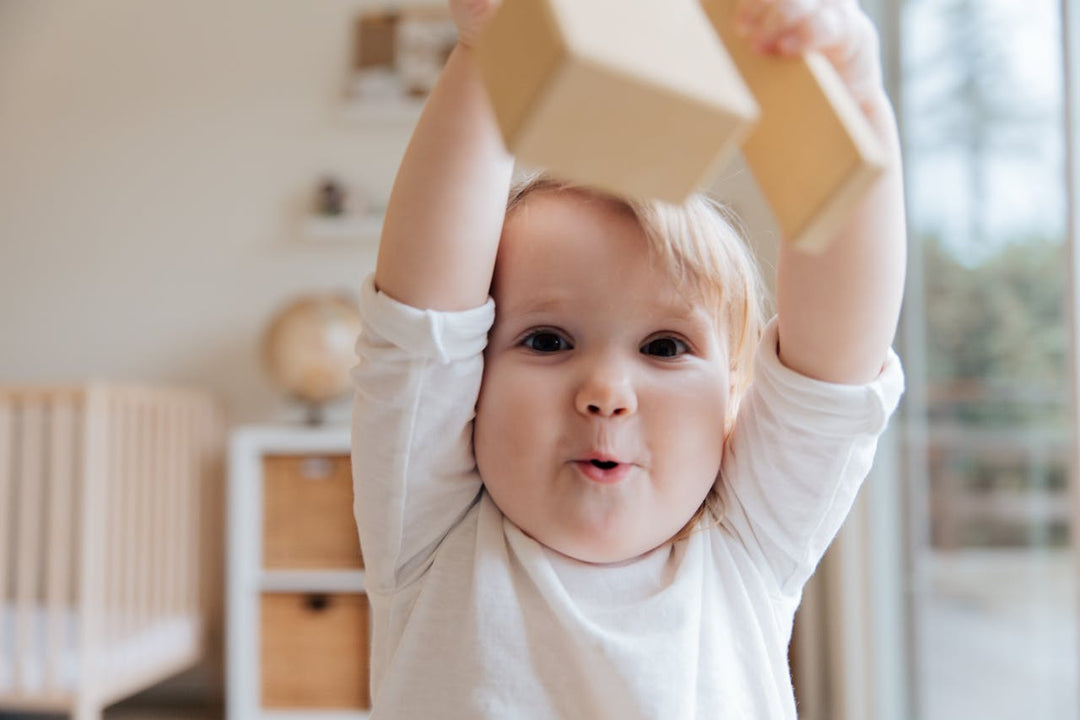Encouraging Independence with Montessori Principles

Helping children develop independence is a key element of the Montessori method. By empowering children to make their own choices and engage in self-directed learning, the Montessori approach fosters confidence and self-esteem. This development is essential for children as they navigate the world on their own terms.
The foundation of Montessori education lies in creating an environment that supports a child's natural desire to learn. In this setting, children can access materials and tools that meet their developmental needs, encouraging them to explore and experiment independently. When children are provided with opportunities to make decisions and learn from their experiences, they grow into responsible, self-reliant individuals.
Allowing children to take an active role in their daily routines helps reinforce these principles of independence. By integrating simple, practical activities into a child’s day, such as preparing a snack or dressing themselves, children learn essential life skills. These tasks teach them to take charge of their own needs, leading to a sense of accomplishment and readiness to tackle new challenges.
Understanding Montessori Principles for Independence
Montessori principles center around fostering independence in children, a fundamental aspect of their growth and development. This approach emphasizes self-directed learning, where children choose activities based on their interests and learn at their own pace. These core principles aim to develop a child's autonomy and decision-making skills, preparing them for future challenges.
Independence in the Montessori method begins with creating a child-centered environment. This environment respects children's choices and caters to their need for exploration and learning. By engaging in meaningful tasks, children build confidence and practical skills. Self-correction and reflection further empower them, as they learn from experiences rather than relying solely on adult instruction.
Freedom within limits is another key principle. It allows children to make choices while understanding boundaries set for their safety and well-being. This balance helps children develop self-discipline and an internal sense of order. As they navigate this structured freedom, they learn to take responsibility for their actions and outcomes.
Overall, Montessori's approach to independence hinges on nurturing a child’s innate desire to learn. By providing the tools and environment that support this journey, educators and parents lay the groundwork for a lifelong love of learning and the ability to thrive independently.
Creating an Independence-Focused Environment
Creating a home environment that supports independence involves thoughtful design and organization. This setup allows children to access materials and perform tasks on their own, encouraging self-sufficiency and boosting confidence.
Start by organizing the home to accommodate a child's physical abilities. Lower shelves and hooks keep items within easy reach, allowing children to retrieve and return materials independently. This promotes a sense of responsibility and ownership over their space.
Design a dedicated area for each type of activity. Arrange toys, books, and tools systematically for clear visibility and easy selection. Rotating these items regularly maintains engagement and curiosity. Ensure that materials are age-appropriate and safe, fostering exploration without constant adult supervision.
In the kitchen, set up a child-friendly space with non-breakable dishes and small utensils. Designate a low drawer or shelf for storing snacks within reach. This arrangement encourages children to participate in meal prep and snack time, developing life skills and decision-making abilities.
Incorporate visual aids like picture labels or color coding to help children organize belongings independently. Such tools support their efforts in maintaining order and understanding their environment better.
By designing an environment focused on independence, you provide children with the freedom to learn and grow. These changes establish a structured yet flexible living space that caters to their developmental needs, facilitating confident and capable explorers.
Activities That Foster Independence
Fostering independence in children involves engaging them in activities that build confidence and life skills. These activities help children make decisions and learn through doing, which is a cornerstone of the Montessori philosophy. Offering a variety of tasks for different age groups can support this development.
For toddlers, simple activities like putting on shoes or pouring water into a cup help build motor skills. Providing easy-to-use tools like a small pitcher and cups allows them to practice and succeed. Puzzles and shape-sorters encourage problem-solving and fine motor coordination.
For preschoolers, daily life activities become learning opportunities. Encourage them to dress themselves, with choices laid out to simplify decision-making. Involve them in setting the table, using their own set of non-breakable plates and cups. These tasks teach responsibility and a sense of achievement.
Young school-age children benefit from activities that challenge their problem-solving skills. Encourage them to help with meal preparation by washing vegetables or mixing ingredients. Organize simple sewing or crafting projects that require following instructions, sharpening their focus and patience.
For all age groups, include outdoor exploration like gardening or nature walks. These activities engage children’s senses and teach them about the natural world, promoting curiosity and environmental awareness.
By incorporating these activities into daily routines, you enable children to develop independence while enjoying meaningful and educational experiences.
Using Montessori Tools to Encourage Self-Reliance
Montessori tools play a crucial role in encouraging self-reliance by offering children the means to explore and learn independently. These specially designed tools cater to a child's need for growth and autonomy at various developmental stages.
Practical life tools are essential for teaching everyday skills. Child-sized brooms and dustpans allow children to help with cleaning, boosting their self-esteem and sense of responsibility. Small aprons and utensils in the kitchen encourage participation in cooking, developing their coordination and confidence.
In the educational sphere, Montessori materials like counting beads and sandpaper letters provide tactile, hands-on learning experiences. These tools enhance understanding by allowing children to physically manipulate objects as they learn concepts like numbers and letters. This method supports reading and math skills by connecting abstract ideas to tangible items.
Sensory materials like textured boards and sound cylinders stimulate exploration and help children refine their senses. These tools not only engage children but also promote concentration and order, which are crucial for independent learning.
The Montessori environment also includes tools for self-correction. Puzzles and matching games come with built-in solutions, allowing children to evaluate their process and learn from mistakes. This empowers them to take charge of their learning journey.
Incorporating Montessori tools into daily life equips children with the resources they need to become independent learners. By providing these tools, you create an environment rich with opportunities for exploration and self-discovery.
Conclusion
Building independence in children through Montessori principles sets the foundation for lifelong learning and self-reliance. By understanding these principles and incorporating them into daily life, you nurture a child's ability to explore confidently and make informed decisions. The Montessori approach emphasizes creating a supportive environment filled with engaging activities and thoughtfully selected tools, empowering children to take charge of their learning and development.
Emphasizing practical life skills, sensory exploration, and self-directed learning paves the way for children to grow into capable individuals. As they overcome challenges in their environment, they gain resilience and a deeper understanding of themselves and their abilities. Supporting this journey with Montessori tools and activities ensures that children learn effectively and joyfully, reinforcing their intrinsic motivation and love for learning.
By integrating these elements into your home or educational setting, you lay a solid groundwork for children to thrive independently. This not only benefits their academic growth but also fosters emotional and social development, preparing them to navigate the wider world with confidence and curiosity.
Explore the resources available at Topponcino Company to enhance your Montessori environment. Our selection of Montessori baby items is crafted to support your child's journey towards independence and self-discovery, ensuring they have the tools needed to explore and learn at their own pace.












